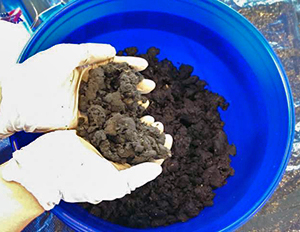Washington, Nov 3: Sewage treatment plants may soon turn human waste into fuel, thanks to a new technology that mimics the conditions the Earth uses to create crude oil - achieving in minutes something that takes Mother Nature millions of years.
The technology, hydrothermal liquefaction (HTL), creates a material similar to petroleum pumped out of the ground, with a small amount of water and oxygen mixed in.
This biocrude can then be refined using conventional petroleum refining operations, researchers said.
According to researchers from the US Department of Energy's Pacific Northwest National Laboratory (PNNL), wastewater treatment plants treat about 34 billion gallons of sewage every day.
That amount could produce the equivalent of up to about 30 million barrels of oil per year in the US.
PNNL estimates that a single person could generate two to three gallons of biocrude per year.
Sewage, or more specifically sewage sludge, has long been viewed as a poor ingredient for producing biofuel because it is too wet.
The approach being studied by PNNL eliminates the need for drying required in a majority of current thermal technologies which historically has made wastewater to fuel conversion too energy intensive and expensive.
HTL may also be used to make fuel from other types of wet organic feedstock, such as agricultural waste.
Using HTL, organic matter such as human waste can be broken down to simpler chemical compounds.
The material is pressurised to 3,000 pounds per square inch - nearly one hundred times that of a car tire.
Pressurised sludge then goes into a reactor system operating at about 350 degrees Celsius.
The heat and pressure cause the cells of the waste material to break down into different fractions - biocrude and an aqueous liquid phase.






Comments
Add new comment